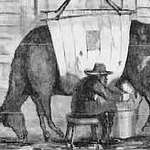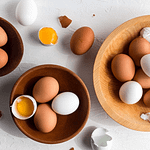Grab your favorite glass of Burgundy and settle in as Leigh and Kim discuss what Leigh learned about making an iconic dish that epitomizes the warmth, hospitality, and culinary traditions of French culture. Leigh even shares what she discovered about herself when making coq au vin from Mastering the Art of French Cooking while Kim talks about the traditional wine used in making this dish.
Cook with any wine you have
We’ve talked at length about how Mastering the Art of French Cooking is a cookbook based on technique. Techniques that make the art of French cuisine and cooking available to the general public. And though there are prescriptions for iconic dishes, there is also some freedom granted by Julia and Co.
Coq au vin - rooster in wine - is traditionally made with red wine, but I love the fact that in the introduction of the recipe Julia notes that you can use “whatever wine you cook with.” This comes from a lady who painstakingly tested, re-tested, and re-tested all of the 524 recipes in the book. She understood that in order for people to cook these dishes, it was important to grant some ownership in the creative process.
On being intentional
This recipe is not for the faint of heart. Within the recipe for coq au vin there are an additional 3 recipes for ingredients used. But rather than look at the recipe with trepidation, I chose to recall a visit to France where I learned to understand the importance and intention that the culture places not only on ingredients but meal-times and community.
This is a country where businesses and schools shutter for two hours each day during lunch so that citizens can enjoy a meal with family and friends. Where suppers last well into the late evening hours. And where conversations are considered entertainment.
So, to dedicate a full day of intentional cooking wasn’t a hardship. It was a pleasure. A pleasure that elicited some interesting revelations about some of my cooking habits and one of the most delicious meals we had all week.
What about the wine
Although Julia and Co. indicate that you can use “whatever wine you use for cooking,” traditionally, coq au vin utilizes a wine that is local to the region, Burgundy. Kim takes us on a little tasting tour of this earthy wine made in the region since the Romans annexed this area into their empire.
Episode Transcript
🎧 Click here for the full, interactive transcript of this episode 🎧
Sources We Found Helpful for this Episode
Mastering the Art of French Cooking by Julia Child, Louisette Bertholle, Simone Beck
My Life in France by Julia Child and Alex Prud'homme
Books We Think You’ll Enjoy Reading
Mastering the Art of French Cooking by Julia Child, Louisette Bertholle, Simone Beck
My Life in France by Julia Child and Alex Prud'homme
Recipes You Really Need to Try
Episodes We Think You’ll Like
Episode 14 Casseroles: Tuna Noodle, Green Bean, and Gleaming Vessels
Episode 38: Fire & Ice: Two Modern Kitchen Technologies that Changed Our Kitchens and Diets
Episode 59: Bon Appétit! How Julia Child Made America Fall in Love with French Food
Join us in two weeks when we discuss a cookbook that was written to inform, educate, and break some very ingrained stereotypes. If you’re enjoying the podcast, we would love to have you join our supporting subscribers. For just a few dollars, you can get access to exclusive content, including the Recipe Box Roulette “card game”, more in-depth articles, and recipes. You’ll also help keep our oven lights on!
We would love to connect with you
AsWeEat.com, on Instagram @asweeat, join our new As We Eat community on Facebook, or subscribe to the As We Eat Journal.
Do you have a great idea 💡 for a show topic, a recipe 🥘 that you want to share, or just say “hi”👋🏻? Send us an email at connect@asweeat.com
Review As We Eat on Podchaser or Apple Podcast. We would like to know what you think.
Thank you for listening to the As We Eat Podcast. This post is public so share it with a friend - or three :)
























Share this post